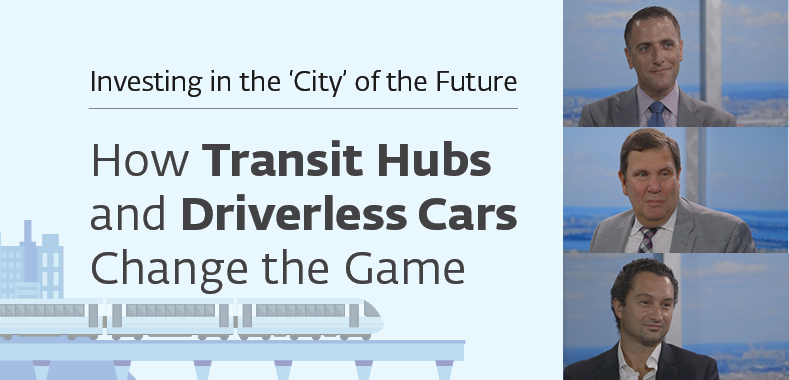How Millennials Are Disrupting Real Estate
Millennial spending and household-formation preferences, retail disruptions, and global capital flows are top trends shaping the investment outlook for U.S. real estate, say two expert observers of the global economy
Privcap: Millennials are moving to major cities, seeking work, and having different expectations about what their workplace should be like. What kind of effect is that having on the office market?
Joe Brusuelas, RSM: [Since] those 25-to-34-year-olds have entered the market, it’s been, on the margin, very positive for commercial real estate. What you’re seeing is a little bit of a renaissance in many of these buildings as demand for the integration of advanced technology in the workplace accelerates.
Lee Menifee, PGIM: Twenty, 30 years ago, the best [office properties] were in the suburbs, because that’s where the employees wanted to work. And now they’re in cities, because that’s where the employees want to work. It’s just a different set of employees.
Joe, how is the trend of millennials and family formation affecting multifamily assets?
Brusuelas: What we’ve seen is a real shift away from single-family residences in the suburbs. We saw, at least with the last two generations, more of a demand for multifamily dwellings, condos and coops.
Boston’s the [metro area] where it’s most telling, where they have a very low unemployment rate. There’s an intense competition for workers, and the millennials who are arriving have different forms of demands. So you see lots of multifamily units being built, adjacent to highly clustered, dense workplaces where many of these young people ride their bikes or take public transportation to work rather than own a car.

Menifee: We were looking at the household formations data with trepidation for many years. It was incredibly low and really put off by what was a really severe recession for everybody, but particularly for young people, who had an extremely hard time getting a job and coming into the workforce. But now the fastest pace of hiring is going on in that age cohort—25-34.
Let’s talk about another real estate area that is undergoing tremendous disruption, and that’s retail. How can an investor find a place to invest?
Menifee: Looking at the disruption that’s going on in bricks-and-mortar retail, you see a whole sector like office supply in trouble, consolidating; electronics, which is almost going away; even the grocery segment, which is a sort of an ongoing consolidation trend. And then you get to the threat from e-commerce, and there’s a lot of reasons to be very negative about retail.
Our basic view is that in 10 years we don’t know whether or not the tenants in any particular center are going to be there.
Joe, what do investors need to understand about some macro trends that are affecting retail?

Brusuelas: We’re undergoing a pervasive disintermediating and disruption in the overall retail space. What we’re seeing is a profound behavioral shift by the new emerging demographic majority, not only in how they shop, where they spend money, why they spend money, and what they’re likely to spend money on. I think the motto of that emerging demographic majority is to own memories, not stuff.
And so with a migration into preferences on spending with travel accommodations, entertainment, and not just buying 12 pairs of jeans, you’re going to see a pretty thorough shakeout in the commercial real estate environment.
Lee, how can you even quantify the effect that something like e-commerce would have on retail real estate?
Menifee: The growing share of e-commerce is having a profound [negative] impact on retail real estate, but also [a big positive] for industrial real estate, and we expect that positive to continue this year, particularly for industrial real estate that’s located somewhere where you can deliver to the consumer within a day, [and] sometimes within hours.
Millennial spending and household-formation preferences, retail disruptions, and global capital flows are top trends shaping the investment outlook for U.S. real estate, say two expert observers of the global economy
